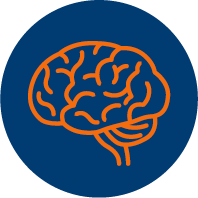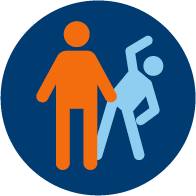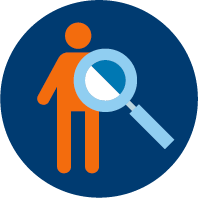The ACT Data Repository
The ACT Data Repository is broadly defined as all data related to participants in the Adult Changes in Thought (ACT) Study. At a high level, data sources that make up the ACT Data Repository include data collected directly by the ACT Study — such as self-reported risk factor data, cognitive testing data, and research diagnoses produced by the ACT Study team in the course of working directly with participants — along with data from a number of other sources, as outlined below. Major categories of data that comprise the ACT Data Repository are included, along with a high-level description of each data domain.
ACT Study Visit Data
ACT participants complete an ACT Study visit where standardized measures and forms are collected approximately every 2 years (biennially) until dementia diagnosis, death, or study withdrawal.
Historical Life Course & Social Determinants of Health Data
The ACT Life Course Core is conducting a one-time survey administered to active ACT participants focused on early life-course exposures, and has plans to enhance use of geocoded and U.S. Census-linked data.
Electronic Health Record & Utilization Data
Because ACT participants are sampled from among Kaiser Permanente Washington members, the ACT Study provides the opportunity to leverage select clinical and claims data from participants’ health system utilization.
Medical Record Abstraction Data
Some medical record data is not standardly available for electronic linkage. As a result, the ACT Study has been conducting an ongoing manual medical record review to abstract additional elements as a resource for potential use in future research.
Neuropathology Data
Some ACT participants consent to brain autopsy upon death, generously donating their brain for neuropathological assessment by the ACT Neuropathology Core. Tissue and data elements derived from those assessments of ACT participant brains are collected and stored. The standard ACT neuropathology dataset contains measures from ACT participants who died and for whom neuropathological assessment was completed.
Neuroimaging Data
Processed measures from brain magnetic resonance imaging (MRI) exist for some participants in the ACT Study. These measures, provided by the ACT Neuroimaging Core, come from a mix of clinical and research MRI scans abstracted from medical records and prospective research MRI scans conducted by the Core among select samples of ACT participants.
Activity Monitoring Device (Accelerometry) Data
In 2016, participants in the ACT Study were invited to participate in an activity-monitoring sub-study (ACT-AM) involving the wear of an activPAL and/or ActiGraph accelerometer for 7 days. Since then, activPAL data collection has been expanded to a larger number of ACT participants and included addition of an Actiwatch to capture sleep measures.
Genetic, Biomarker, or Other Specimen Data
DNA samples were and are collected from ACT participants. Apolipoprotein E (APOE) genotype is routinely obtained from these samples and used in many ACT analyses. ACT has started to obtain new blood samples from participants at study visits. Data generated from these blood samples — including plasma biomarkers — will be part of the ACT Data Repository in the future.
Data Generated from ACT-Affiliated Research Studies
This includes a variety of data types not collected as part of any of the data streams above, added for the explicit purpose of answering a research question funded by an ancillary grant working with the ACT cohort. Some examples include the ACT Air Pollution study, various traumatic brain injury projects, and the Eye ACT study.








